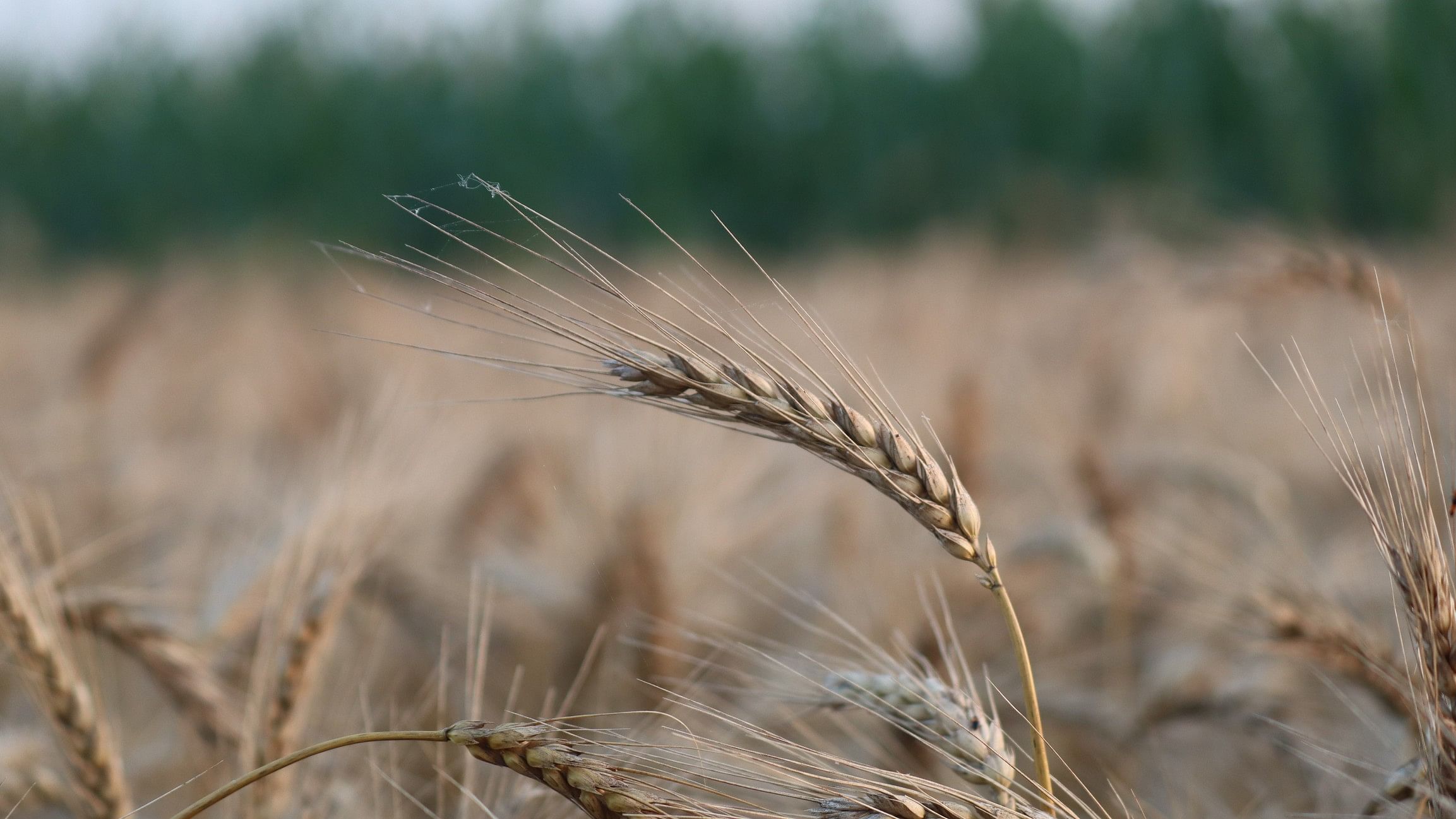
Representative image showing wheat ready for harvest.
Credit: iStock Photo
A guaranteed minimum support price (MSP) for all agricultural produce, which is among the key demands of protesting farmers, will have a material impact on the exchequer but help in crop diversification and support farmers’ income, analysts said.
“If the government procures the entire production of 23 crops for which minimum support price (MSP) has been announced, the impact will be multi-pronged. For the exchequer, this will mean materially higher expenditure,” said Pushan Sharma, Director-Research at CRISIL Market Intelligence & Analytics.
The government will require a working capital of around Rs 6 lakh crore in the current marketing season if it procures only crops trading in mandis below the MSP, CRISIL analysis showed.
However, the real cost to the exchequer, which is the difference between MSP and mandi price, works out to be around Rs 21,000 crore for the marketing season 2023-24.
“The cost could be higher if the government offloads the commodities in mandis because then prices could fall further than what was seen in those markets in 2022-23, which we have used to calculate the government’s bill,” said Sharma.
Though MSP is announced for 23 crops, the government ends up meaningfully procuring only two crops — paddy and wheat. During the 2022 kharif season, 41 per cent of paddy produced in the country was procured under MSP, while 24 per cent of wheat produced during the 2023 rabi season was procured.
Next came mustard, where 9 per cent of production was procured. Eight crops did not need procurement at MSP as their mandi prices were higher. For the remaining 5 crops, procurement was less than 3 per cent of the production.
Over 60 per cent of field crop production (excluding sugarcane) in India comes from only two crops, paddy and wheat as farmers tend to opt for these given the MSP support and lack of risk appetite for other crops.
“In this milieu, guaranteeing MSP for all crops can lead to farmers moving to crops other than paddy and wheat, which see the maximum procurement,” said Sharma.
Another critical aspect to consider is that procurement is concentrated in only a few states, such as Punjab, Haryana, Madhya Pradesh, Chhattisgarh, Telangana and Uttar Pradesh.
Guaranteeing MSP across crops will lead to percolation of the benefit across the country. It will support farmer income and thereby also give a push to consumption demand, a CRISIL analyst said.
On the inflationary impact of MSP, he said “A few crops could see an up move in prices if the mandi prices are much lower than MSP.”
At present, MSPs for 22 mandated crops are fixed by the central government on the basis of the recommendations of the Commission for Agricultural Costs and Prices (CACP). Views of states and other stakeholders are also taken.
However, farmer unions that are participating in the protests, demand the enactment of legislation to guarantee MSP for all crops.